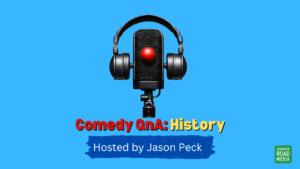“Fifty-seven years in this business, you learn a few things. You know what makes an audience laugh. You know what words are funny and which words are not funny. Alka Seltzer is funny. You say “Alka Seltzer” you get a laugh… words with a “K” in them are funny.
Casey Stengel, that’s a funny name. Robert Taylor is not funny. Cupcake is funny. Tomato is not funny. Cookie is funny. Maryland is not funny. Then, there’s chicken. Chicken is funny. Pickle is funny.”
That opening quote from The Sunshine Boys by American comedy writer Neil Simon nicely sets up this post “Secret Comedy Writing Techniques – Funny Words”.
Now, although I say Secret Comedy Writing Technique it’s probably not that much of a secret because it’s freely discussed in various books available on comedy writing. But I figured I’d do my own short series on Comedy Writing Techniques.
What I’m going to say right off the bat is that you don’t really need to know this technique at all if you’re naturally funny. I’ve met many people who made me laugh, both on and off stage, who didn’t have a clue about any of this.
The reason for the post is that it can’t hurt to know the information. If you’ve created funny material is can help tweak the funny that’s already there. Think of your funny material as a house and this technique (or any of them really) as decorating that house.
Professional comedians, humorists and comedy writers have known for a long time that some words are just naturally funnier than others. What I won’t do in this post is to attempt to come up with an explanation for this.
A lot of the words that we find amusing contain “hard-sounding” letters, such as “k,” “g,” “b,” and “d.” Don’t forget that a lot words have the “k” sound even though some words begin with a “c”.
Like Neil Simon said pickle is funnier than orange, kangaroo is funnier than rabbit, kitten is funnier than horse, and on and on. Sometimes the word doesn’t contain that hard sound, it’s just a word that conjours up an absurd image. Where would we be without humorist Dave Barry and his delightful use of the word weasel?
Make sure that when you use a word with a “hard-sounding” sound to it that it doesn’t alter the meaning of your line. The meaning of the line outweighs the use of a funny word. But if you can find a way to make an addition then by all means do so.
Obviously, you can’t use this technique with every key word (nor is it necessary). But when you can use it, see if you can substitute a word that has a “hard” sound it might help things along a little.




2 comments
1 ping
Following on from this, Jason, using specific names of products, say ‘custard cream’ instead of just ‘biscuit’ also seems to work – once you have found the right product! Northern writers and comics like Alan Bennett, Victoria Wood and Peter Kay seem to be particularly good at this.
Author
Absolutely Nick. Being specific when it comes to using humour is very important indeed. You’ve actually kinda of pre-empted a future post there. Being specific can apply to not just funny words but to a whole host of different aspects to telling a story or delivering humour.
The location of the story or joke, the products, the day… and so on.
You’re absolutely right about those Northern English comedy writers/performers. They are very good at this, I’d go so far as to say frequently better than their Southern counterparts.
I’m sure there’s an explanation to this that delves into stereotypes relating to the “north-south divide”, but i’m not going to try to deal with that today.
Thanks for contributing.
[…] Peck reminds us that funny words contain hard sounds, particularly “k”. Casey Stengel, that’s a funny name. Robert Taylor is not funny. […]